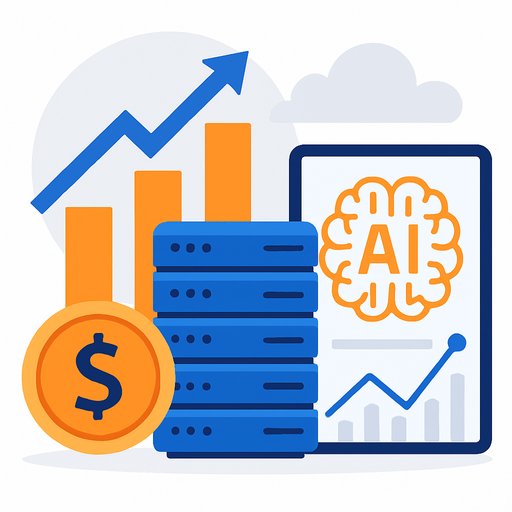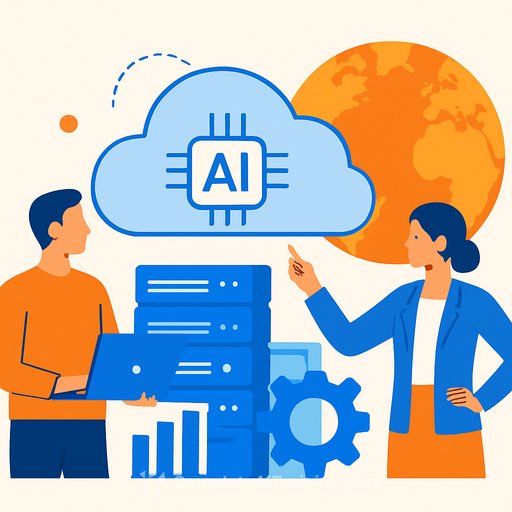Top 10 AI Prompts and Use Cases in the Real Estate Industry in Minneapolis
The Minneapolis real estate market, with a median home price around $299,500 and average days on market near 41, is seeing practical AI applications that streamline processes and improve outcomes. AI-driven tools are reshaping how listings are discovered, how properties are valued, and how transactions close faster.
Key use cases such as Automated Valuation Models (AVMs), listing automation, lead scoring, document extraction, and tenant screening offer the potential to automate about 37% of real estate tasks. This can lead to closing deals 10–15 days faster and add 30–50% more searchable features to listings, supporting an industry valued at $34 billion in efficiency gains.
Course Highlight: AI Essentials for Work
For real estate professionals wanting practical AI skills and prompt-writing expertise, a 15-week course offers hands-on learning. Early registration costs $3,582. This training focuses on workplace AI integration that can speed up marketing, valuation, and operational workflows.
“Operating efficiencies, mainly through labor cost savings, represent the greatest opportunity for real estate companies to capitalize on AI in the next three to five years,” says Ronald Kamdem of Morgan Stanley.
Methodology: Choosing the Top 10 Use Cases and Prompts
The selection process focused on real-world impact for Minneapolis practitioners. Use cases were matched against proven industry categories while considering local market players and regulatory requirements. The key criteria included measurable time or cost savings, compliance with data privacy laws, and relevance to Minneapolis brokers, investors, and municipal services.
1. Property Valuation Forecasting with HouseCanary-style Models
Minneapolis brokers and investors can reduce guesswork by using AI tools that analyze localized Home Price Indices (HPIs) and Automated Valuation Models (AVMs). These models leverage decades of transaction data to provide actionable insights like month-by-month trends for ZIP codes in the Twin Cities.
2. Real Estate Investment Analysis with Skyline AI and Keyway
For those evaluating multifamily or mid-market properties, combining Skyline AI’s detailed national data sweep with Keyway’s automated document processing can turn lengthy underwriting into near-instant analysis. This approach speeds diligence and improves investment decisions.
3. Commercial Location Selection Using Placer.ai and Tango Analytics
Commercial brokers and retail planners in Minneapolis can use location intelligence platforms like Placer.ai to study foot traffic and consumer demand, helping select prime sites backed by data instead of guesswork.
4. Streamlining Mortgage and Closing Workflows with Ocrolus and alanna.ai
Mortgage brokers, lenders, and title companies can reduce closing times by integrating Ocrolus’ document automation with loan origination systems. This cuts down manual data entry and accelerates approvals.
5. Fraud Detection and Tenant Vetting with Proof and Snappt
Tenant screening in Minneapolis requires fast, AI-enabled checks that respect local disclosure and expungement laws. Tools like Proof and Snappt help detect fraud while ensuring compliance with Minnesota regulations.
6. Listing Description Generation and Visual Marketing with Restb.ai and Listing AI
In a photo-driven market like Minneapolis, Restb.ai enhances listing photos by converting them into marketing and SEO assets, boosting visibility and buyer interest.
7. NLP-Powered Property Search and Conversational Agents like Ask Redfin
Natural Language Processing (NLP) powered search tools and chatbots are changing how buyers in the Twin Cities discover homes by making searches conversational and more intuitive.
8. Lead Generation, Scoring, and Nurturing with Catalyze AI and Homebot
Local agents can fill their pipelines with high-potential seller leads using event-driven signals from Catalyze AI, combined with Homebot’s client engagement tools tailored for Minneapolis market dynamics.
9. Property Management Automation & Predictive Maintenance with HappyCo and Elise AI
Property managers can shift from reactive maintenance to predictive upkeep by combining HappyCo’s centralized maintenance platform with Elise AI’s automation for resident interactions.
10. Construction and Project Management Optimization with Doxel and OpenSpace
General contractors and project owners in Minneapolis can improve timelines and reduce costly rework by using Doxel’s AI-powered progress tracking alongside OpenSpace’s rapid 360° reality capture technology.
Conclusion: Starting Small in Minneapolis
Begin AI adoption with three focused pilots: a property valuation and forecast check, a listing automation trial, and a targeted lead generation rollout. These pilots provide measurable results and a foundation to expand AI use across workflows.
Frequently Asked Questions
- What are the top AI use cases transforming the Minneapolis real estate market?
Property valuation forecasting, investment analysis, commercial location selection, mortgage and closing automation, fraud detection and tenant screening, listing generation and marketing, NLP-powered property search, lead generation and scoring, property management automation, and construction/project management optimization. - How can AI improve property valuation and what local metrics should Minneapolis practitioners track?
AI tools provide ZIP code-level HPI trends, three-year value forecasts, market grade and volatility scores, and affordability time series to inform better decisions. - What legal and compliance considerations should Minneapolis teams follow when using AI for tenant screening?
Tenant screening automation must comply with Minnesota’s disclosure, expungement, and consumer access laws. - Which quick pilots deliver the highest near-term ROI for Minneapolis teams testing AI?
Valuation accuracy checks, listing automation, and lead generation rollouts offer fast, measurable returns. - What skills or training help Minneapolis real estate professionals implement these AI use cases safely and effectively?
Practical prompt-writing, AI tool integration, and governance knowledge are essential for smooth adoption.
For those interested in gaining practical AI skills tailored to real estate and construction workflows, consider exploring focused courses on Complete AI Training.
Your membership also unlocks:






